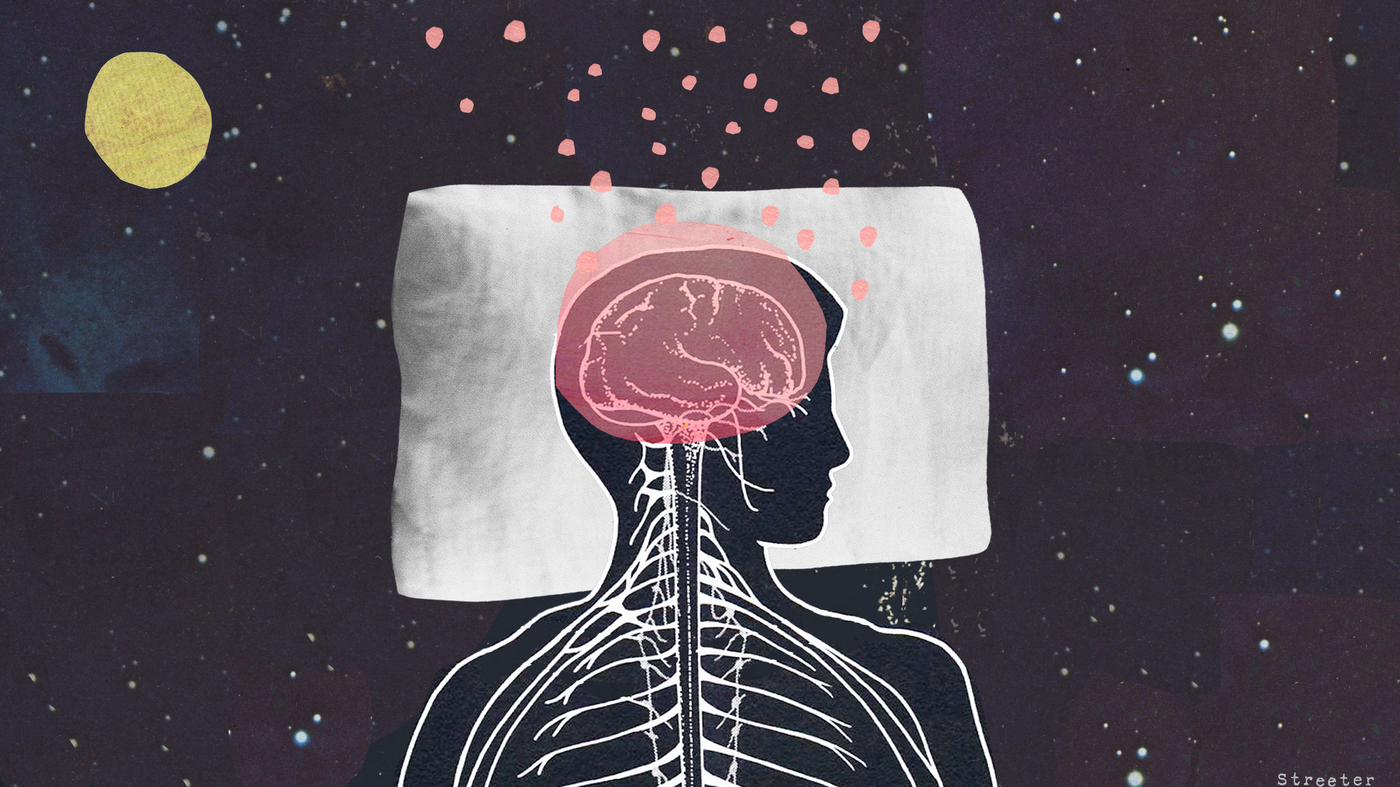 Our brain is extremely good at protecting itself from outside interference. Consider only the blood-brain barrier that makes it almost impossible for toxins in the blood to enter into the brain. This is without doubt a good strategy for survival, so we can easily understand why it exists. Another remarkable feature of the brain is that the process of storing memories in long-term memory mostly takes place during sleep in order to prevent interference from new experiences. However, what happens if we are awakened during this process? This is exactly the question that Levy and his colleagues[1] at the Bar Ilan University’s Brain Research Center wanted to answer. They have been researching how memories are stored in long term memory during sleep. Interestingly, this memory storage-process called consolidation is also related our “dream amnesia”. Being unable to remember our dreams shortly after awakening is in fact not at all a coincidence.
Our brain is extremely good at protecting itself from outside interference. Consider only the blood-brain barrier that makes it almost impossible for toxins in the blood to enter into the brain. This is without doubt a good strategy for survival, so we can easily understand why it exists. Another remarkable feature of the brain is that the process of storing memories in long-term memory mostly takes place during sleep in order to prevent interference from new experiences. However, what happens if we are awakened during this process? This is exactly the question that Levy and his colleagues[1] at the Bar Ilan University’s Brain Research Center wanted to answer. They have been researching how memories are stored in long term memory during sleep. Interestingly, this memory storage-process called consolidation is also related our “dream amnesia”. Being unable to remember our dreams shortly after awakening is in fact not at all a coincidence.
In their research published in SciencesPsy[2], it is described that Levy and his colleagues have successfully identified the link between the synthesis of specific proteins and the memory consolidation process (process of storing information in long-term memory). In fact, by studying Aplysia sea slugs, they show that a synthesis of specific proteins is put in place as soon as new knowledge is acquired. This synthesis of proteins is at the origin of the phenomenon of consolidation in long-term memory, allowing us to remember past events. To strengthen the memory trace and to prevent disturbance, these proteins are produced in greater quantity during sleep. However, if the synthesis of these proteins is blocked during sleep, as for example in the case of nocturnal awakening, then the consolidation process is stopped. To sum up, if sleep is interrupted during the night it causes the specific protein synthesis to stop, inhibiting the consolidation of memories. To implement new learning, whether that is learning to drive a car or learning a new language, it is crucial not to interrupt the process of consolidation during the night. In other words, you might want to rethink substituting a good night’s sleep with reading the night before an exam.
So why is it that I cannot remember my dreams, you might ask. In fact, in showing that the protein synthesis in the consolidation process occurs mainly during sleep, the researchers at the Brain Research Center also saw that the brain actually inhibits dreams from interfering with this process. The latter prevents new memories from forming during the consolidation process, giving rise to the “dream amnesia” that we all know. From an evolutionary point of view, storing memories in long-term memory during sleep would seem more adaptive because we do not actually need to remember our dreams, whereas forgetting what you did yesterday would be a disadvantage. Obviously, we cannot draw direct conclusions to human memory from studying slug memory, but knowing which protein synthesis can inhibit and consolidate memories in long term memory could have potential applications within the field of psychology. We can imagine creating a drug that could prevent posttraumatic stress disorder (PTSD) following a traumatic experience caused by a traumatic event like war or disaster.
However, there are multiple issues that we would have to resolve before this could be possible. Firstly, much more research would have to be done on a human basis to support these findings. We do not know if this protein synthesis would block emotionally charged experiences, after all, we are often able to recall nightmares in detail. Secondly, ethical issues would arise such as the risk of potentially suppressing other memories, or the question of when to use it and not.
[1] Levy, R., Levitan, D., & Susswein, A. J. (2016). New learning while consolidating memory during sleep is actively blocked by a protein synthesis dependent process. eLife, 5, e17769. http://doi.org/10.7554/eLife.17769
[2] Mémoire, une question de sommeil. (2017, mars). SciencesPsy, (9), pp.129.
(Pierre Martineau, Charline D.)
![]()